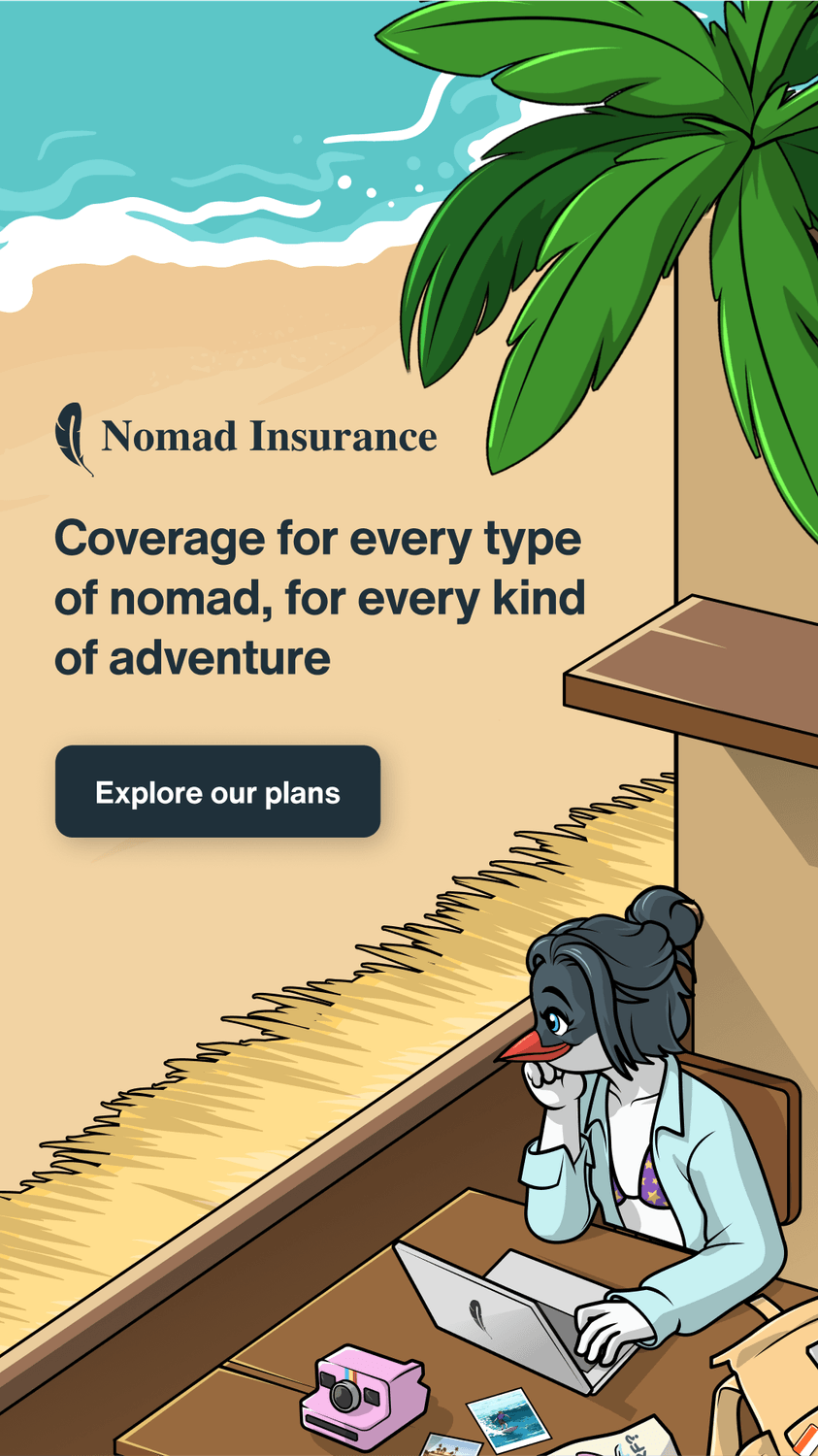How I Bought Property in Dubai (A Real Story + What I Wish I Knew)
This post may contain affiliate links. If you click and make a purchase, I may earn a small commission at no extra cost to you. Thank you for supporting Firefly so I can keep creating free travel content ✨
This isn’t a love letter to Dubai real estate — it’s the honest version.
When I first visited Dubai as a tourist, I was dazzled. Futuristic towers, glowing fountains, icy-cold arcades inside giant malls, beach sunsets, and a city that wakes up at night — it felt like a dream you can walk through. Two weeks weren’t enough; the list of things to see, try, and taste is endless.
Living there is a different story — a beautiful, complicated one. A few years later, my family and I (with our tiny Yorkshire terrier, Daisy) moved to Dubai. We started in Business Bay, later shifted to Palm Jumeirah.
By then, the city had already become more than a skyline to me; it was a daily rhythm. Grocery runs at midnight, morning coffee with marina views, late-night swims in pools that looked like liquid glass. Somewhere along that path, we bought — twice.
And before you picture me as some real estate mogul sipping coffee at the top of Burj Khalifa... I’m not. I’m just a forty-something mom who works online, travels with a tiny dog, and somehow ended up buying property between school runs and Zoom calls.
This isn’t a “10 tips” list. It’s how Dubai property really works when you’re the one signing, paying, moving, and building a life.
The Shape of the City (…and Why It Changes Everything)
Dubai is long — really long. It’s not a compact European “old town + center + everything happens there.” Landmarks are scattered: Old Dubai and the Creek, Downtown and Burj Khalifa, Jumeirah’s beachfront stretch, Marina’s glittering canyons, and the Palm’s feathery crescent. Crossing from one end to the other can easily take 30–45 minutes, so location is a lifestyle choice, not just a pin on a map.
Business Bay felt like a central, modern hub. We loved being minutes from Downtown, with brunch spots downstairs and water views in the afternoon. Palm Jumeirah was a different mood — resort living, seafront silhouettes, quieter nights, pricier days. Both are “freehold” areas, which matters (more on that in a second).
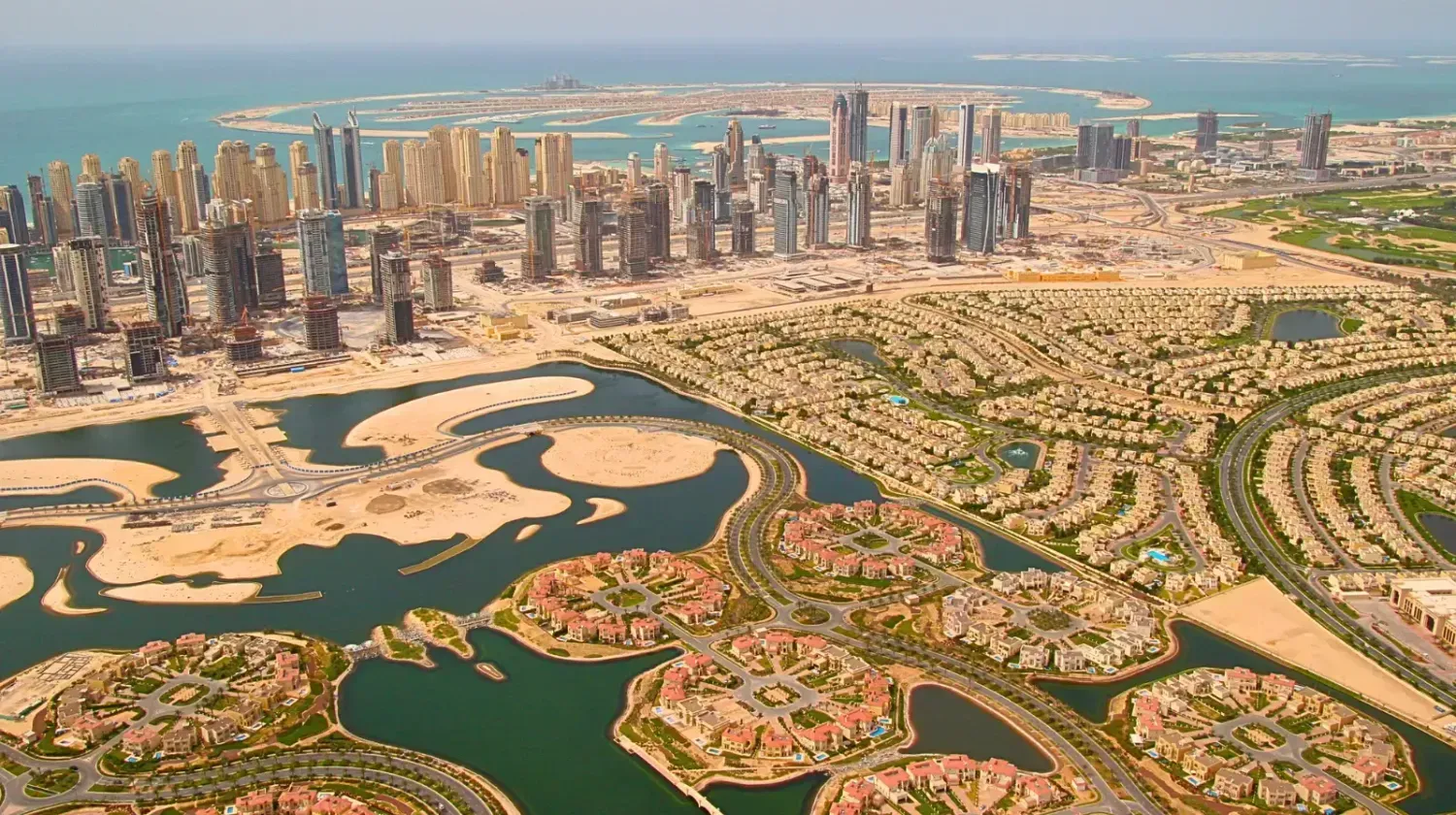
The Moment You Realize Buying Isn’t Complicated
You hear this a lot, and for once it’s true: buying property in Dubai is straightforward. As a foreigner, you can own 100% in designated freehold zones (Downtown, Marina, Palm, JVC, Business Bay, Dubai Hills, and others). In leasehold areas, you buy the right to use for a long period (often up to 99 years), but you don’t own the land itself. I always check this first — it decides how free you are to hold, rent, sell, and inherit.
What surprised me most was how simple developers make the process:
A valid passport is usually enough to start.
For off-plan (under construction), you often get a payment plan instead of a bank loan.
Payments go through escrow accounts with the Dubai Land Department — a layer of protection that calms the mind.
We went through a broker both times — he was the one who took us to the developer.
We didn’t pay him directly; the developer did. But like most brokers, his job was to make everything sound perfect, get the deal signed, and disappear right after the commission landed.
At the time, we didn’t think much of it — it felt easier to let someone “handle it.”
But looking back now, I wouldn’t do it again. If I could start over, I’d go straight to the developer, ask questions myself, and skip the middleman entirely.
That’s my honest advice to anyone buying in Dubai: brokers paint the picture beautifully, but once the ink dries, you’re usually on your own.
Buying (or Selling) Without Ever Setting Foot in Dubai
Here’s something most people don’t realize — you don’t actually have to be in Dubai to buy or sell property there.
Everything can be done remotely through a Power of Attorney and a registered Real Estate Agency.
That means you can complete the full purchase, sign contracts, and even receive ownership documents while staying in your home country.
The same applies if you ever decide to sell — your authorized representative can handle it all on your behalf.
Dubai’s real estate system is surprisingly modern and efficient. Payments, documentation, title deeds — everything’s digital, verified, and streamlined.
And while prices have gone up in recent years, Dubai property still offers incredible value compared to major global cities.
To put it in perspective:
A modern 1-bedroom apartment in Dubai can start from around $180,000 in newer suburban areas, while central districts like Business Bay or Downtown often start closer to $300,000 and up.
while similar homes in New York, London, or Munich easily cost double or even triple.
What you get for that price is impressive:
almost every new building includes a gym, swimming pool, parking, 24/7 security, and often a small grocery shop or café nearby.
Life is built for convenience — step out of your apartment, and everything you need is just a few minutes away.
And if you’re buying as an investment, rental management is incredibly simple.
Many developers and agencies offer full services: they find tenants, handle cleaning and maintenance, collect payments, and manage everything remotely.
You can literally own, rent, and earn from a Dubai property — all from your laptop.
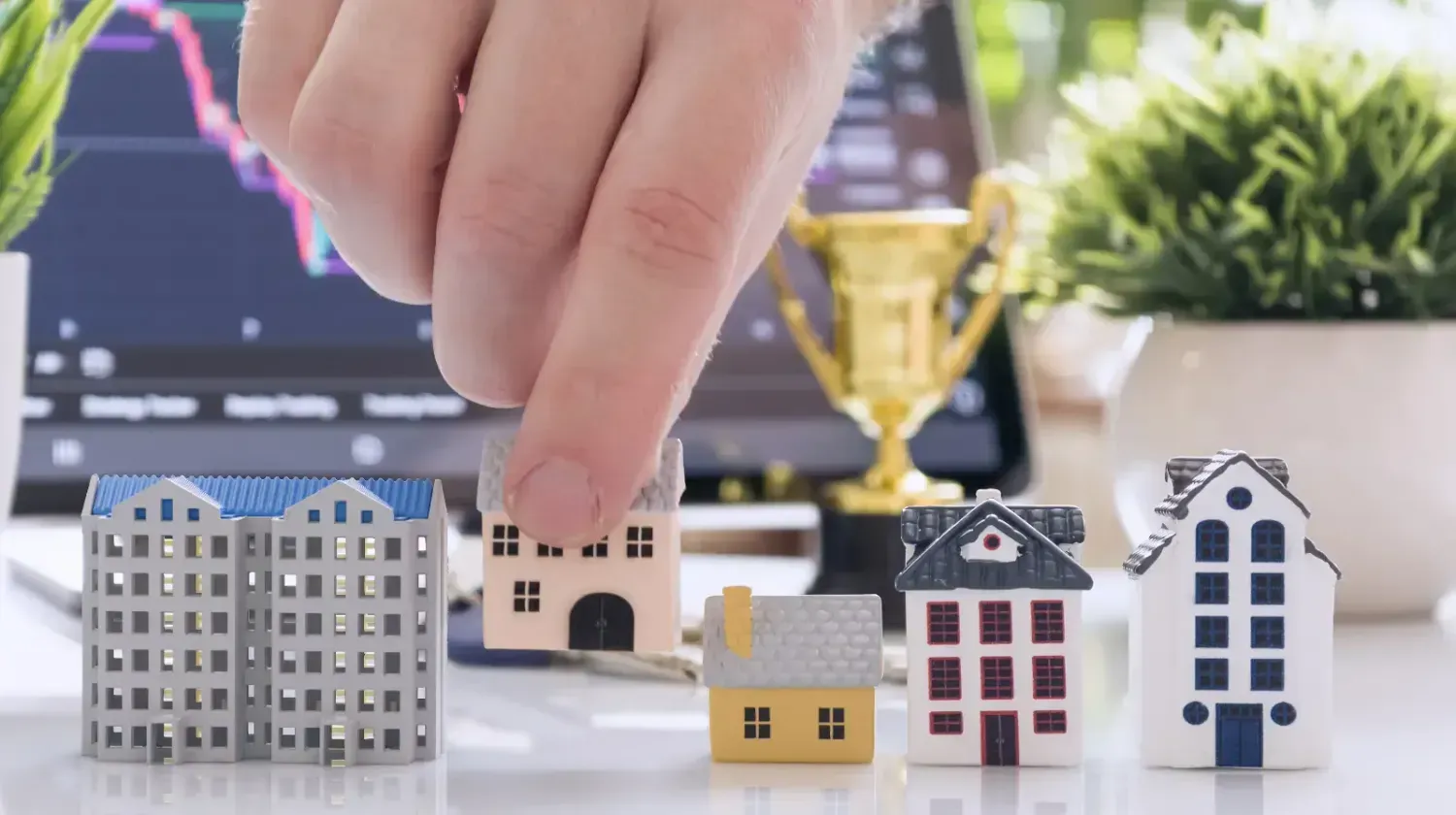
Dubai Living: Finding the Right Area, the Right Home, and a Little Shade for the Dog
If you plan to live with pets, know this: not every building in Dubai accepts them. Some communities are pet-friendly — especially newer areas like JVC, Dubai Hills, or Town Square — while others, mainly older or high-end towers, keep strict “no pets” policies.
When apartment hunting with Daisy, we quickly realized that choosing the right area matters as much as the apartment itself. Buying a home in Dubai isn’t like buying a pair of socks — you really need to study the neighborhood, what’s nearby, and how it fits your lifestyle. Every district feels completely different, from quiet residential zones to buzzing downtown energy.
In summer, the heat is brutal — sidewalks can burn tiny paws, and green spaces are rare — so if you’re moving with pets, make sure your building has at least some grass, shade, or a nearby park. It’s not just comfort; in Dubai, it’s a survival strategy for furry family members.
Costs People Forget (Until They Pay)
When you buy a property in Dubai, it’s not just the price tag on the brochure — there are "hidden" costs that quietly sneak in.
At first, we thought, “Okay, that’s the price,” but once the paperwork started, the extras lined up: a 4% Dubai Land Department fee, an agency commission, admin and registration fees, NOC fees, and of course the famous annual service charges for building maintenance, cleaning, security, landscaping — the works.
None of that comes back to you when you sell, unless you add it to your asking price.
So it’s smart to count it all in from day one. Gorgeous lobbies and shiny pools might look tempting, but predictable fees are what really keep your investment (and your nerves) steady.
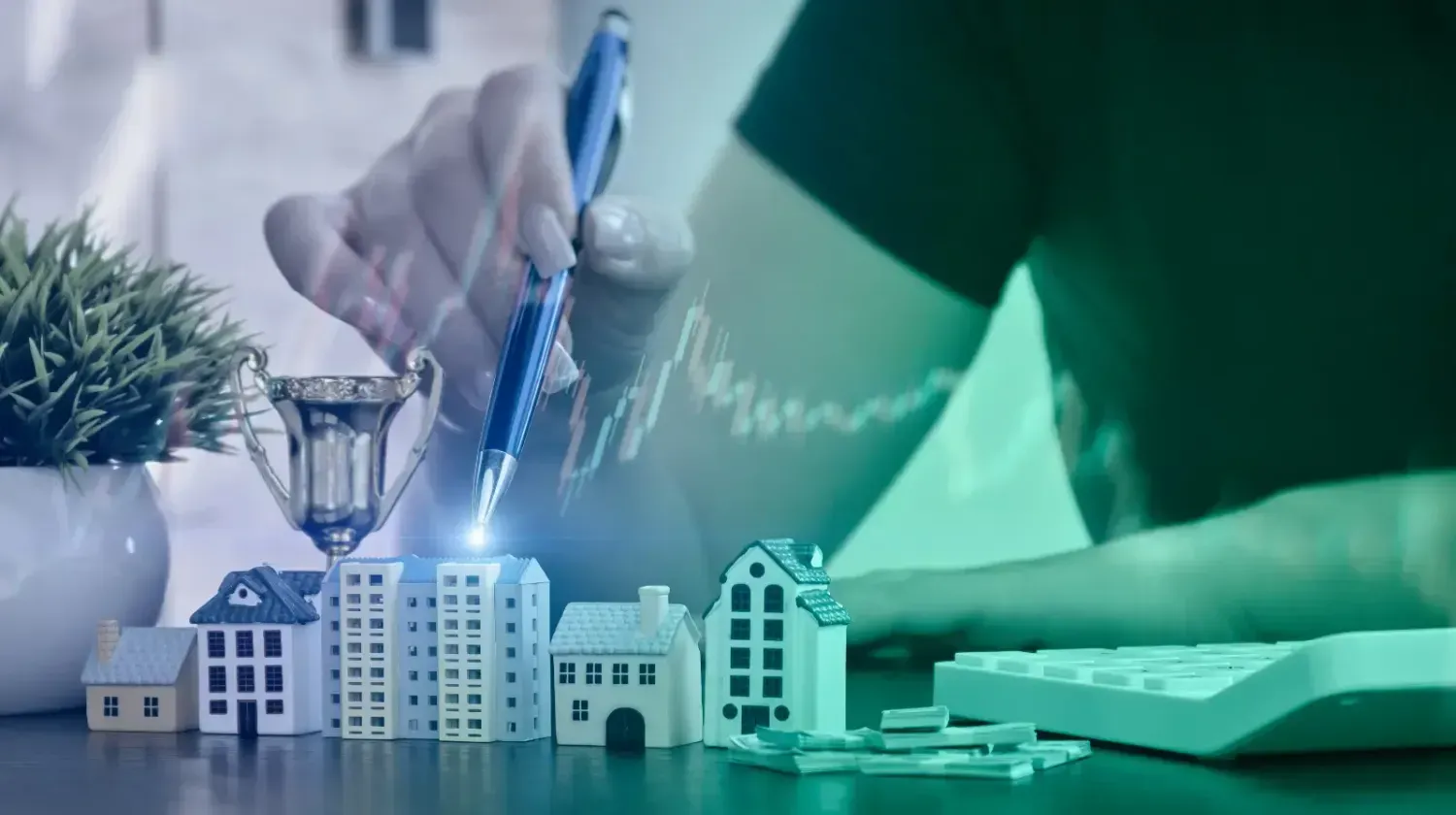
Off-Plan or Ready? How I Decide
Ready-to-move gives you keys and certainty.
Off-plan gives you flexible payment plans, newer stock, and sometimes better appreciation.
We went the off-plan route because we liked paying in stages without a mortgage — no monthly bank interest, no endless paperwork — just direct installments to the developer. Some developers even stretch the plan beyond handover, which sounds great on paper, but remember: you’ll get your keys while still paying monthly. That can feel like a hybrid between renting and owning — fine if it fits your budget, tricky if you’re juggling other costs.
And here’s one lesson I learned the hard way: always check if the project is truly freehold or leasehold. We were told it was freehold — turns out it wasn’t.
Yes, technically it was written in the contract, but not in plain words, and I missed it. Back then, AI wasn’t reviewing contracts for us (if only it did!). So please — don’t just take anyone’s word for it. Triple-check it yourself, ask questions, and make sure you know exactly what kind of ownership you’re signing for.
If you go this route, I’d do three things every time:
• Check the developer’s track record (delivery dates, build quality).
• Verify RERA registration, escrow, and ownership type (freehold vs. leasehold).
• Read the SPA (Sale & Purchase Agreement) slowly — dates, penalties, what’s included, and when the last payment really lands.

Business Bay vs Palm Jumeirah (How It Actually Feels)
Business Bay was energy. Coffee shops at 7 a.m., water views, 10 minutes to the dancing fountains, fast Uber rides, short hops to DIFC or City Walk. Rents were lower for us here — depending on season and lease structure.
Palm Jumeirah was serenity. Sea on three sides, hotel-style amenities, sunset rituals. Rents were higher — but you wake up inside a screensaver. If you’ll actually use the resort life (pools, beach clubs, spas), it can be worth every dirham. If you’ll spend every day “in the city,” consider whether you’re paying for a lifestyle you won’t have time to enjoy.
That is why is important to carefully pick the location of your real estate.
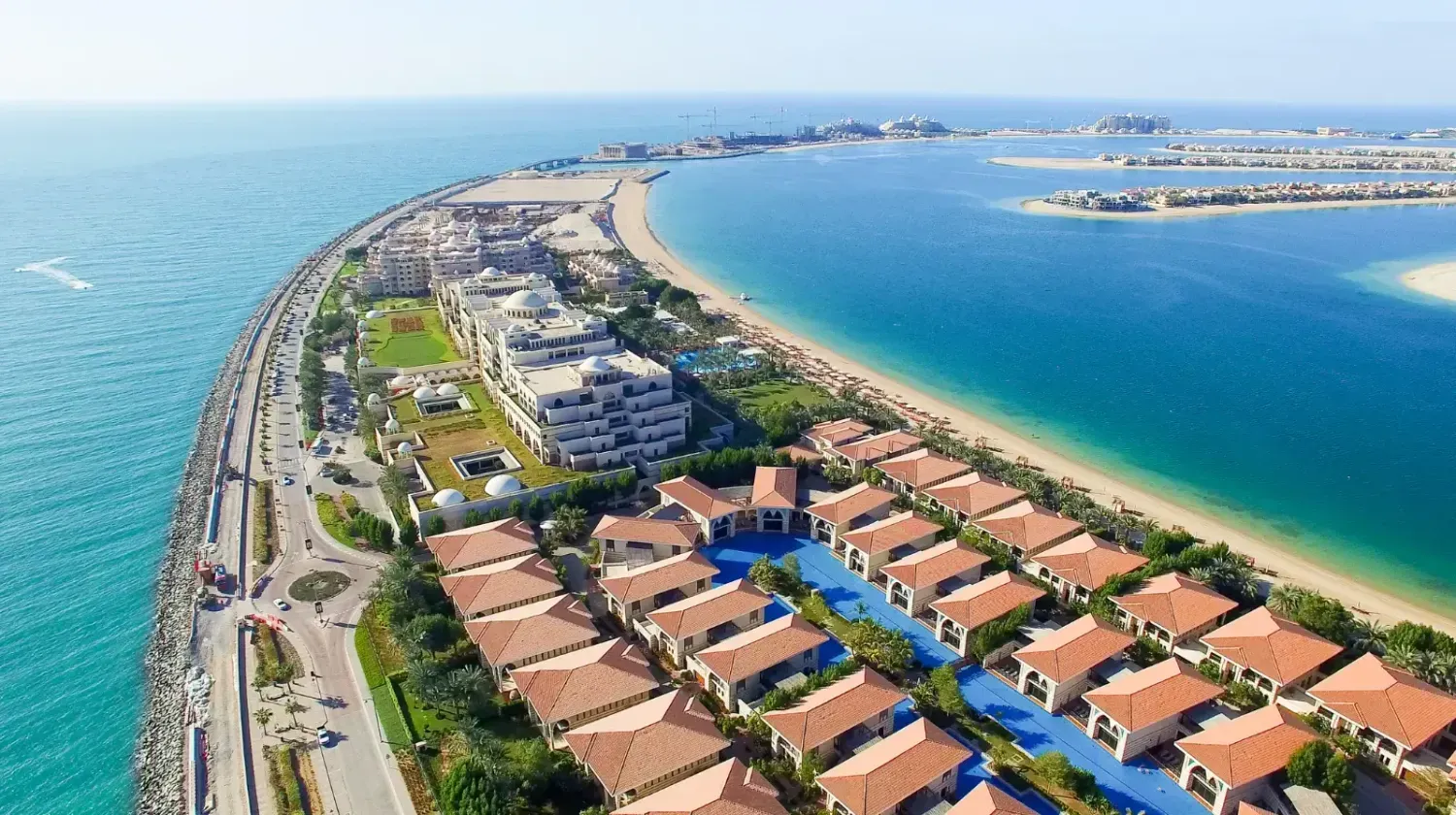
Why People Actually Buy Property in Dubai
Let’s be real — people don’t move to Dubai just for the skyline. They move because it’s one of the safest, cleanest, and most business-friendly cities in the world.
There’s no personal income tax, you can open your own company with full ownership, and you get access to a modern, global lifestyle that’s hard to match anywhere else.
For investors, Dubai offers stable property laws, year-round sunshine, and rental returns that often beat Europe or the US. And for digital nomads or entrepreneurs — it’s a place where you can run a business in the morning, swim in the sea by noon, and have dinner in the desert by sunset.
Most agents handle everything through WhatsApp — from property tours to signing documents. It’s fast, efficient, and a bit surreal when you realize you just reserved a $200K apartment over voice notes.
If you’re curious about what living there actually feels like — from daily life to safety, culture, and that famous desert heat — read my other story:
If you’re curious about what living there actually feels like — from daily life to safety, culture, and that famous desert heat — read my other story:
👉 What It’s Really Like Living in Dubai – My Honest Experience
And if you’re more on the business side (hello, future entrepreneur ✨), you’ll love this one:
👉 How to Start a Business in Dubai as a Foreigner (LLC, Free Zones & 0% Tax Explained)
You can also check out some of the hotels and areas where we stayed on my travel shop.
These are real stays we personally tried — from central Dubai to quiet corners near the beach.
This is my affiliate shop, which means I may earn a small commission if you book through my links. It costs you nothing extra and helps me keep sharing honest stories and travel tips online. ✨
If There’s One Chapter I’d Call “Don’t Believe the Brochure,” It’s This One
Our broker was friendly, confident, and full of promises — and honestly, for someone new to the Emirates, it all sounded believable.
First lie: she drove us to Sharjah, saying it’s “basically still Dubai.”
And to be fair — if you’re new, you’d never know the border exists. The skyline keeps going, the roads look the same, and for a while you think you’re just in another district of Dubai — maybe a little past the Marina. But you’re not. Sharjah is a completely different emirate, with different ownership laws — and for foreigners, that matters.
Second lie: “It’s freehold.”
It wasn’t. It was leasehold, which I only realized much later.
Yes, it was in the contract, but not in clear wording, and I missed it. That’s on me — but also, back then, AI wasn’t reading contracts for us. (If only ChatGPT had existed then, it would’ve caught it instantly.)
Third lie: “Developers must hand over on time — or pay huge penalties.”
Not true. Those penalties don’t kick in right away; often not until six months to a year after the deadline. And yes, developers do delay. The handover date on paper isn’t a promise — it’s a hopeful guess.
Fourth lie: “You can sell your unit overnight.”
Nope. Not even close.
Even if you’ve already paid 30% or more, resale isn’t instant. There are hundreds of similar listings out there, and unless you’ve got a one-of-a-kind apartment, you’re competing with everyone else. It can take months — sometimes even a year — to sell.
Fifth lie: “You’ll make at least 20% profit by handover.”
That one sounded great — buy early, watch it grow, cash out before the building even opens.
In reality, it depends entirely on the project, timing, and demand. Some developments go up, sure — but many don’t. And if the market slows or the project struggles to sell, you can even end up selling at a loss. That 20% “guarantee” looks amazing on slides, but in real life, it’s marketing magic dust.
And the final straw? When I asked her who’s reselling all those units everyone supposedly flips for instant profit, she smiled and said — “Me!”
Like it was the easiest money in the world.
Later, when things didn’t go quite as shiny as promised, she suddenly claimed she had actually advised us not to buy at all.
Biggest lie of them all.
So here’s my truth:
If someone had asked me back then, I’d probably have said, “Everything sounds great!” — while all the red flags were waving right in front of me.
And if I could give one piece of advice? Don’t take a broker’s word as gospel.
They’ll sell you sunshine and skyline views, but once the papers are signed, they vanish faster than your cooling system in August.
Ask, check, verify — then check again.
Because in Dubai real estate, smiles are free — but mistakes cost a fortune.

Furnished or Not? Here’s What to Expect
Most new apartments in Dubai come partly or fully furnished, depending on the project. It sounds great — and it usually is — but here’s the catch: the quality of the furniture depends on the price of the property.
Cheaper developments often include more basic finishes and lower-end materials, while premium projects usually offer elegant, higher-quality interiors.
Overall, most units look modern and clean — perfectly fine to move into — but it’s worth checking everything in person if possible. Photos can be a little too kind.
Also, because Dubai builds fast (and I mean fast), minor construction flaws are common. Scratches, loose handles, a leaking tap — small things, but they happen. The good news is that developers usually include a warranty period where they fix such issues if you report them within the first few months.
And one more thing people rarely mention: Dubai’s environment is tough on buildings.
The heat, sea air, and desert sand slowly wear things down, so even a new apartment may age faster than you’d expect. Think of it as part of the deal — the city shines bright, but the climate doesn’t go easy on materials.
So, when buying, don’t just look at the view or the pool. Check the quality of the doors, tiles, and finishings. Sometimes what glitters in Dubai really is gold… and sometimes it’s just polished plastic. ✨
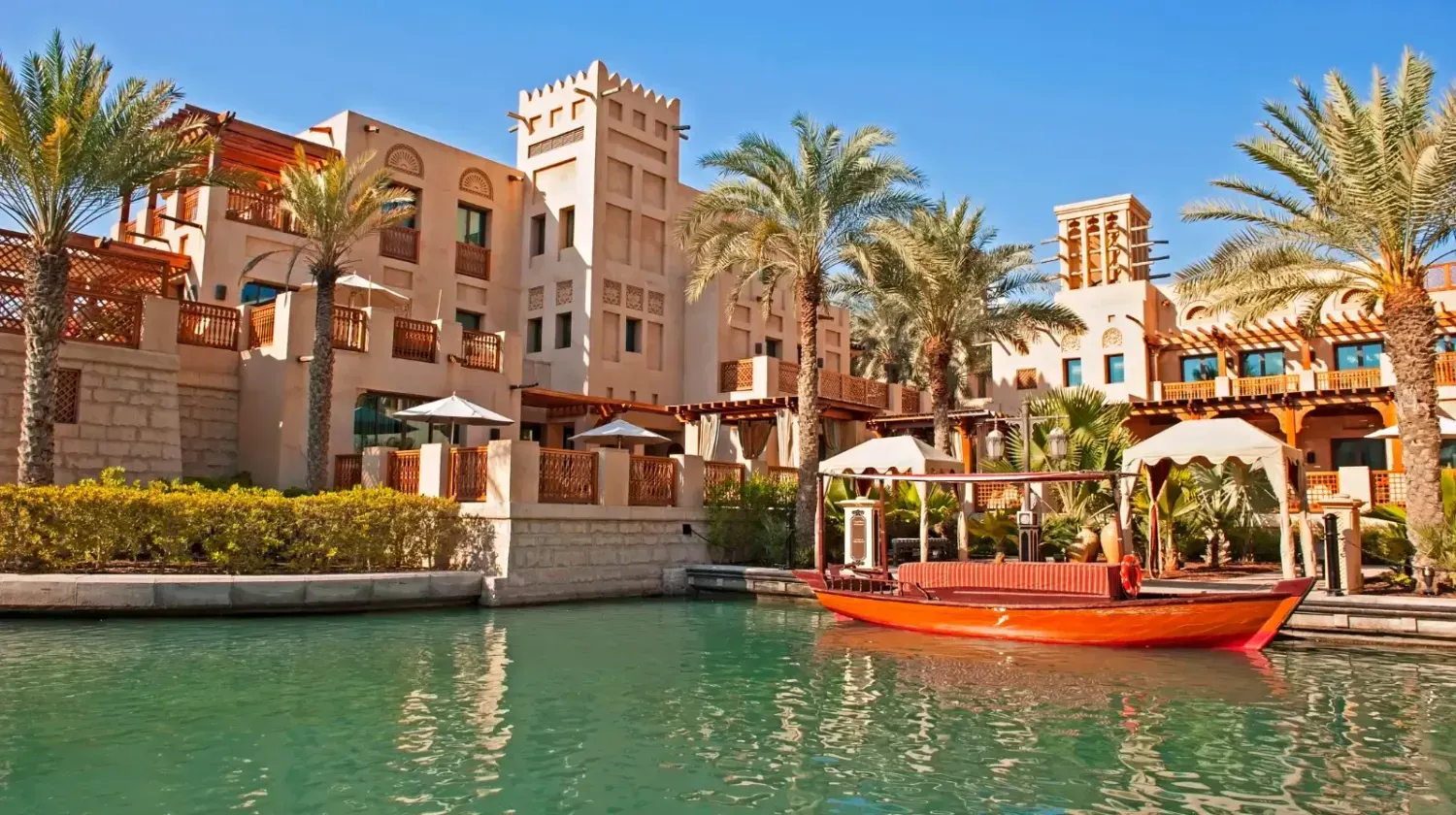
What I Ask Before I Sign (My Personal Filter)
I go in with a list:
Freehold or leasehold? Exact terms?
RERA registration + escrow confirmed?
Developer’s delivery history and penalties for delays?
Handover date and what “ready” actually includes (appliances? AC unit? parking?)
Service charges (numbers + what they cover)
Noise / view / light (visit morning and night)
Connectivity (metro, exits, traffic bottlenecks)
Tenant profile nearby (if I plan to rent)
Residency visa options for my purchase level
And one more: Do I need a broker? If I’m buying directly from a developer, the answer is often no. If it’s a resale or a very niche neighborhood hunt, a licensed agent can be worth it — but I still verify everything and never sign what I haven’t read.

Yes, Dubai Still Uses Cheques (and Here’s Why You Should Be Careful)
One thing that surprised me — Dubai still does business with cheques.
Yes, real, physical paper cheques.
If you’re from Europe, like me, you probably haven’t seen one since the ’90s and have no idea how this system even works anymore.
In Dubai, cheques are still common for rent, deposits, and property transactions.
Sometimes even the deposit (the so-called “ara”) is paid with a cheque — but here’s the problem:
a cheque is not guaranteed money.
It can bounce, it can take time to clear, and the person holding it might not even be able to cash it if it’s not properly verified.
There are also different types —
a personal cheque (from someone’s bank account) and a manager’s cheque (issued by the bank, and the only one that’s truly guaranteed).
So if you ever deal with cheques in Dubai, be extremely cautious.
Make sure the cheque is:
issued by a reputable bank,
verified as “manager’s cheque”,
and that the agent or seller actually hands it to you or the right legal entity — not “someone from the office.”
Because the truth is: a paper cheque can look official but mean nothing.
I personally avoid them whenever possible — and I have good reason.
There’s a reason the rest of the world moved on from them.
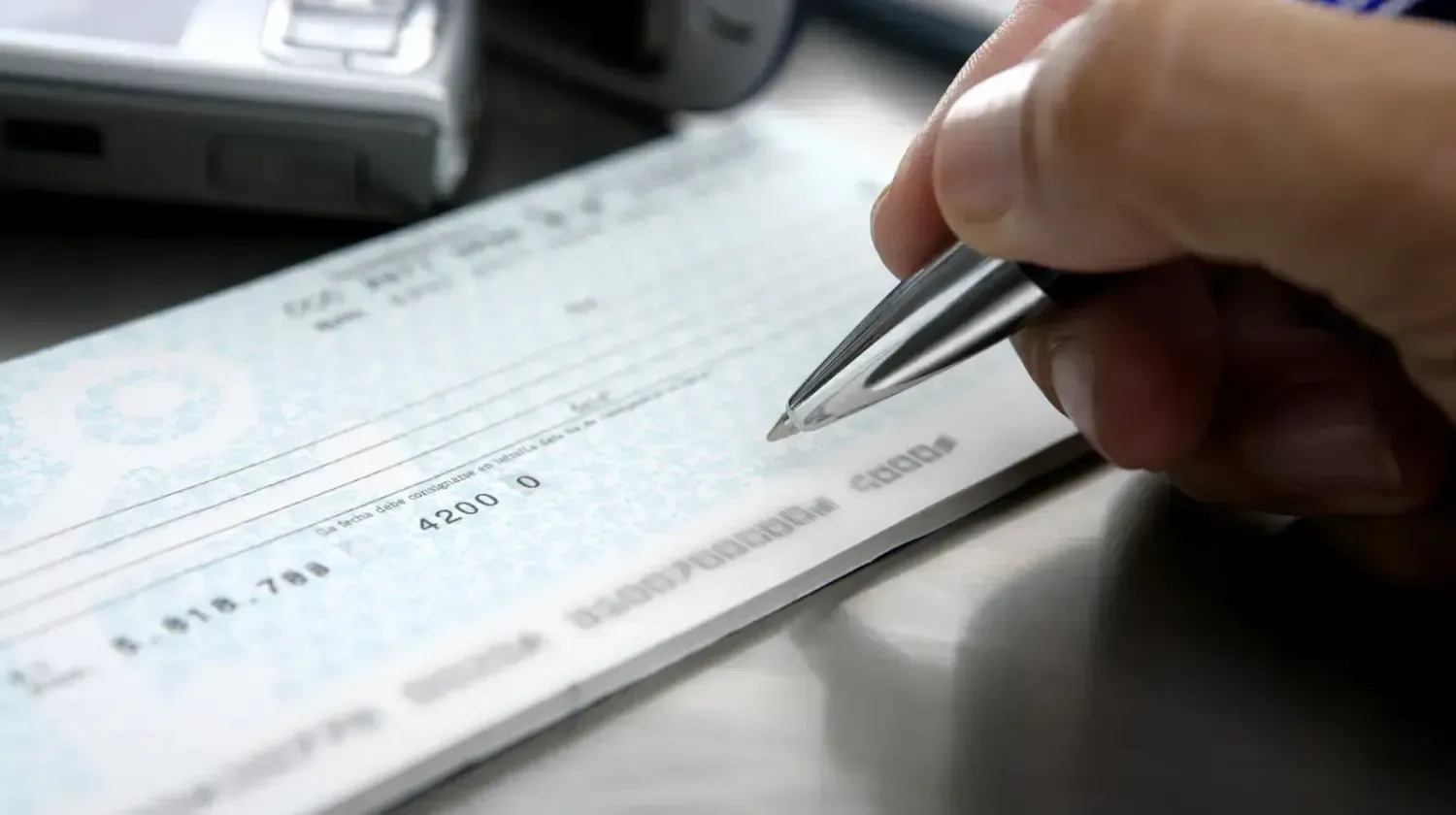
Property Investment and Dubai Visas
One of the lesser-known perks of buying property in Dubai is that it can make you eligible for a residence visa.
If you purchase a property worth at least AED 750,000 (around $204,000 USD) in a freehold area, you can apply for a 2-year renewable investor visa.
For investments of AED 2 million and above (about $545,000 USD), you may qualify for the 10-year Golden Visa, which allows you to sponsor your family and stay long-term.
You don’t need to live in Dubai permanently, but you do need to be physically present for the medical fitness test (blood work and chest X-ray) and biometrics when applying for your visa and Emirates ID. Once issued, the visa can be renewed without difficulty as long as you keep the property in your name.
💡 Firefly Tip: only completed freehold properties qualify for investor or golden visas — off-plan units don’t.
Is It Really Worth It? What the Numbers (and Reality) Say
Short answer: it can be — if you buy smart.
Dubai still has 0% property tax, no tax on rental income, and a USD-pegged currency — which makes it a global magnet for investors. But like every market, it moves in cycles. Prices rise, cool down, and rise again.
According to recent data, property prices in Dubai grew by 15–20% in 2023–2024, but the market is expected to stabilize or grow moderately in 2025–2026 as new projects flood in. That means it’s less of a “get rich quick” game — and more about choosing the right area, developer, and timing.
If you’re buying to live, focus on lifestyle, comfort, and long-term value.
If you’re buying to invest, run your numbers carefully — include service charges, realistic rent, and potential resale delays.
Dubai keeps expanding and reinventing itself — that’s both its strength and its risk.
Buy with clear intent, and you can do really well — and still sleep at night.

Tiny FAQ, Woven Into Real Life
Can foreigners buy property? Yes — in freehold zones you can own 100%.
Do you get a visa if you buy? With qualifying values, yes (2-year investor or 10-year Golden, subject to current thresholds).
Do you need a mortgage? Not necessarily. Many off-plan projects offer payment plans; we bought this way.
Is renting cheaper than buying? Depends on area and season. We found Business Bay rent friendlier than the Palm, but the Palm gave us the lifestyle we actually wanted at that time.
Hidden costs? DLD 4%, potential agency fee (if used), admin, NOC, and annual service charges. Always ask for the last 2–3 years of service-charge statements, if available.

Your Next Step (From Someone Who’s Done It Twice)
If I were starting today, I’d:
Decide live vs. invest (this alone narrows Dubai by half).
Pick 3 micro-areas that match that goal (e.g., Business Bay / Downtown / Dubai Hills for city life; Marina / Palm / Emaar Beachfront for sea life; JVC for value + growth).
Shortlist developers with a strong track record.
Visit sales centers (or book virtual tours), compare payment plans, and ask blunt questions.
Get the SPA and service-charge numbers in writing.
Only add a broker if I’m in resale or need off-market stock — and then verify their license.
Dubai might look like a screensaver, but real life behind it can be beautifully practical — if you know where to stand when the wind turns on, and which doors to walk through when it’s time to buy.
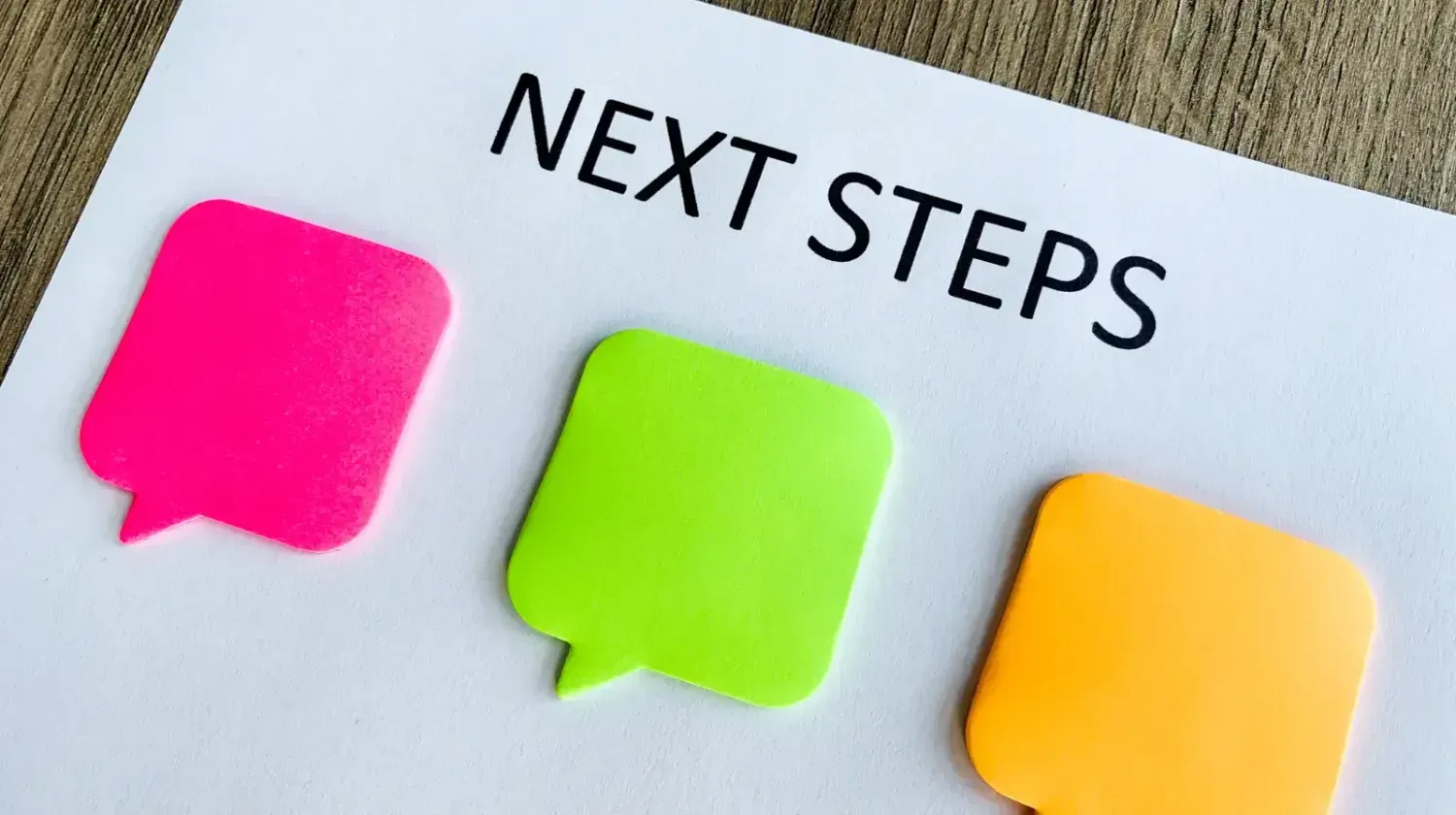
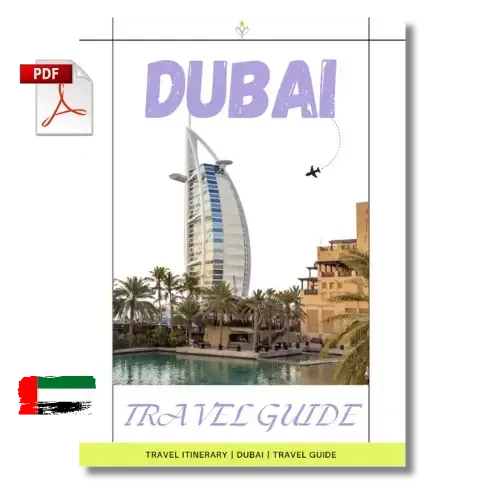
👀 This is a sneak peek from the full Firefly Dubai Travel Guide. Get your copy for just $3.99 and start exploring today!
✨ Dubai Travel Guide – By Firefly
Your stylish 50-page digital guide to Dubai — filled with curated itineraries, local tips, and hidden gems that bring your trip to life. 🌴
Plan your days with ease, explore like a pro, and discover all the best spots — from golden deserts to dazzling rooftop lounges.
💛 Instant download – 50 beautifully designed pages
💛 Firefly insider tips & affiliate links for easy booking
💛 Perfect for travelers, creators & dreamers
👉 Only $3.99 | Instant access after purchase
Hi, I'm Alenka

Welcome to my little corner of the internet — a cozy Firefly space where creativity meets freedom.
I share my love for online business, travel, and design — along with simple ways to turn your ideas into income and your dreams into everyday life.
Here, you’ll find practical tips, tools, and inspiration to help you build a business that fits you — so you can shine online and live life on your own terms.
✨ Loved this post?
Keep exploring — I’ve gathered a few more Firefly stories and guides that can spark new ideas and help you create, travel, and shine online. 🌍
→ Discover more articles below and keep the Firefly glow going. 💛
→ Check out my Canva mini course for beginners
My book Chakra Code helps you find balance, clarity, and flow — so abundance can find you too.
Some of the links in this blog are affiliate links. This means that if you decide to book or buy through them, I may receive a small commission. It won’t cost you anything extra – but it helps me keep Firefly alive and full of free travel tips ✨ Thank you for supporting my journey and helping me share the magic of travel with you 💜
✨ Join hundreds of creators and digital explorers already growing with Firefly!
Unlock exclusive access to free resources, step-by-step guides, and insider tips for creating digital products, growing your business, and living a more flexible lifestyle.
Don’t wait for the perfect moment – create it. Your dream life starts today.
Want a website like mine? Contact me!
© 2025 By-Firefly | Privacy Policy | Terms & Conditions | Pricing Plans | FAQ All Rights Reserved










